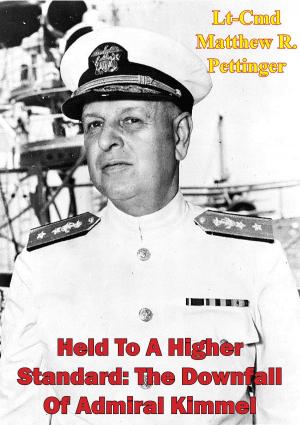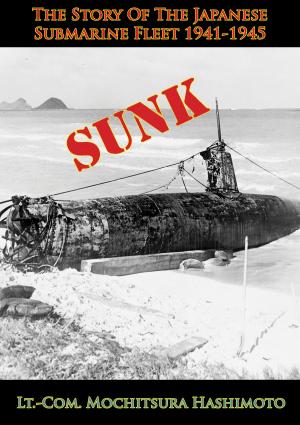The Historical Record, Strategic Decision Making, And Carrier Support To Operation Watchtower
Nonfiction, History, Germany, European General, Military, United States| Author: | Lt.-Cmdr. Scott T. Farr | ISBN: | 9781786256447 |
| Publisher: | Verdun Press | Publication: | November 6, 2015 |
| Imprint: | Verdun Press | Language: | English |
| Author: | Lt.-Cmdr. Scott T. Farr |
| ISBN: | 9781786256447 |
| Publisher: | Verdun Press |
| Publication: | November 6, 2015 |
| Imprint: | Verdun Press |
| Language: | English |
The Battle of Guadalcanal marked the first offensive ground operations conducted in the Pacific theater during World War II. One divisive issue of the Guadalcanal campaign is the withdrawal of carrier based aviation support on 8 August 1942, by Vice Admiral Frank Jack Fletcher. The historical record is dominated by the argument that Fletcher faced very little threat and could have supported the invasion forces longer than he did. What influenced Vice Admiral Frank Jack Fletcher to withdraw carrier based aviation from direct support of the Guadalcanal invasion and was the decision valid? In order to objectively evaluate Fletcher’s decision, this paper will first review historical literature and outline how the dominate opinion of Fletcher’s decision developed. Next, it will look at Fletcher’s character, development as a leader, and record from commissioning through the Watchtower campaign. This study will also review of the orders and guidance at the strategic level and the operations of subordinate commanders within Watchtower. Finally, the metrics of 1942 and the modern strategic military decision-making model will be applied to evaluate the validity of the decision to withdraw. The evidence clearly suggests that Fletcher’s decision was strategically valid, in addition to being characterized inaccurately by historians.
The Battle of Guadalcanal marked the first offensive ground operations conducted in the Pacific theater during World War II. One divisive issue of the Guadalcanal campaign is the withdrawal of carrier based aviation support on 8 August 1942, by Vice Admiral Frank Jack Fletcher. The historical record is dominated by the argument that Fletcher faced very little threat and could have supported the invasion forces longer than he did. What influenced Vice Admiral Frank Jack Fletcher to withdraw carrier based aviation from direct support of the Guadalcanal invasion and was the decision valid? In order to objectively evaluate Fletcher’s decision, this paper will first review historical literature and outline how the dominate opinion of Fletcher’s decision developed. Next, it will look at Fletcher’s character, development as a leader, and record from commissioning through the Watchtower campaign. This study will also review of the orders and guidance at the strategic level and the operations of subordinate commanders within Watchtower. Finally, the metrics of 1942 and the modern strategic military decision-making model will be applied to evaluate the validity of the decision to withdraw. The evidence clearly suggests that Fletcher’s decision was strategically valid, in addition to being characterized inaccurately by historians.



![Cover of the book German Northern Theater of Operations 1940-1945 [Illustrated Edition] by Lt.-Cmdr. Scott T. Farr](https://www.kuoky.com/images/2015/november/300x300/9781782899778-wjod_300x.jpg)











